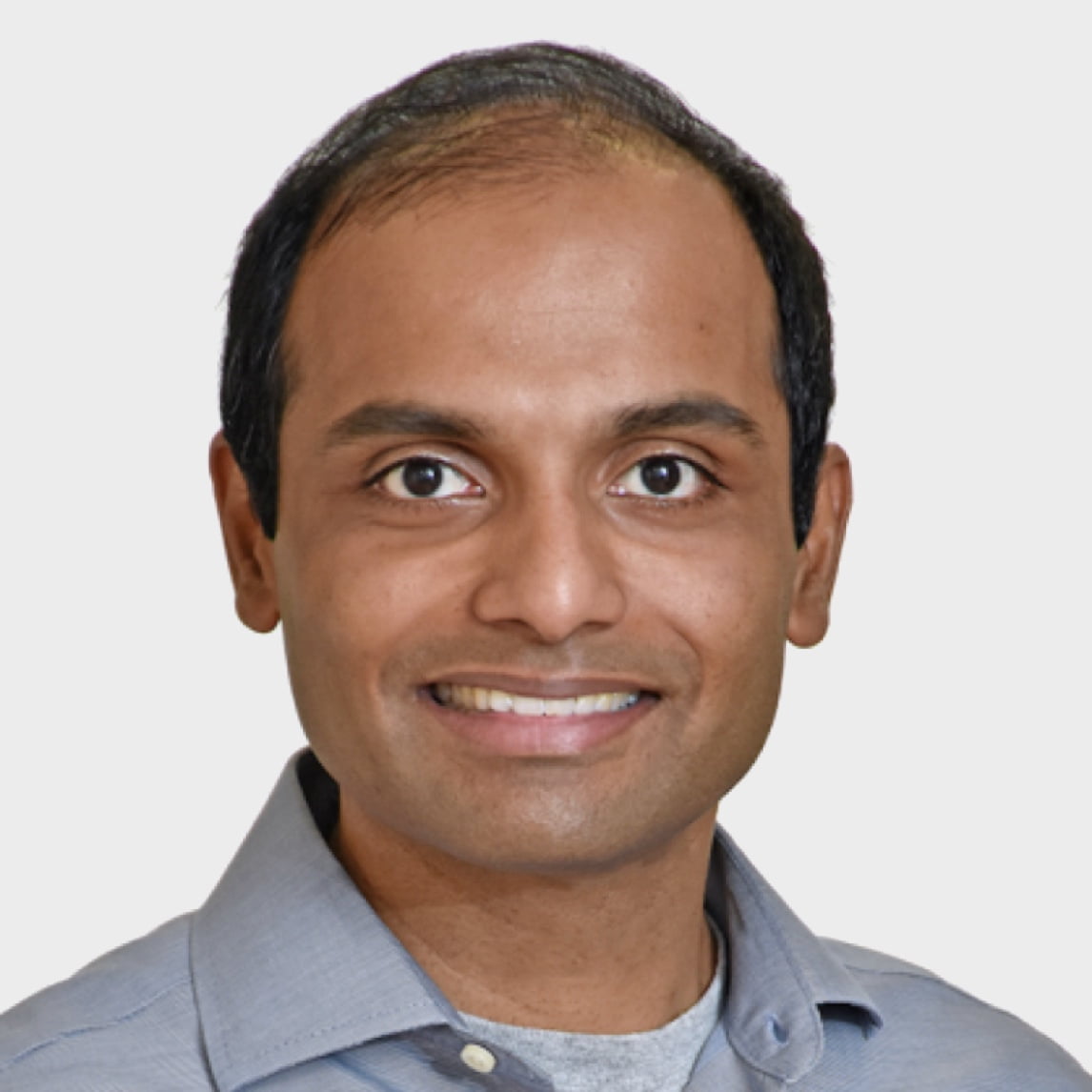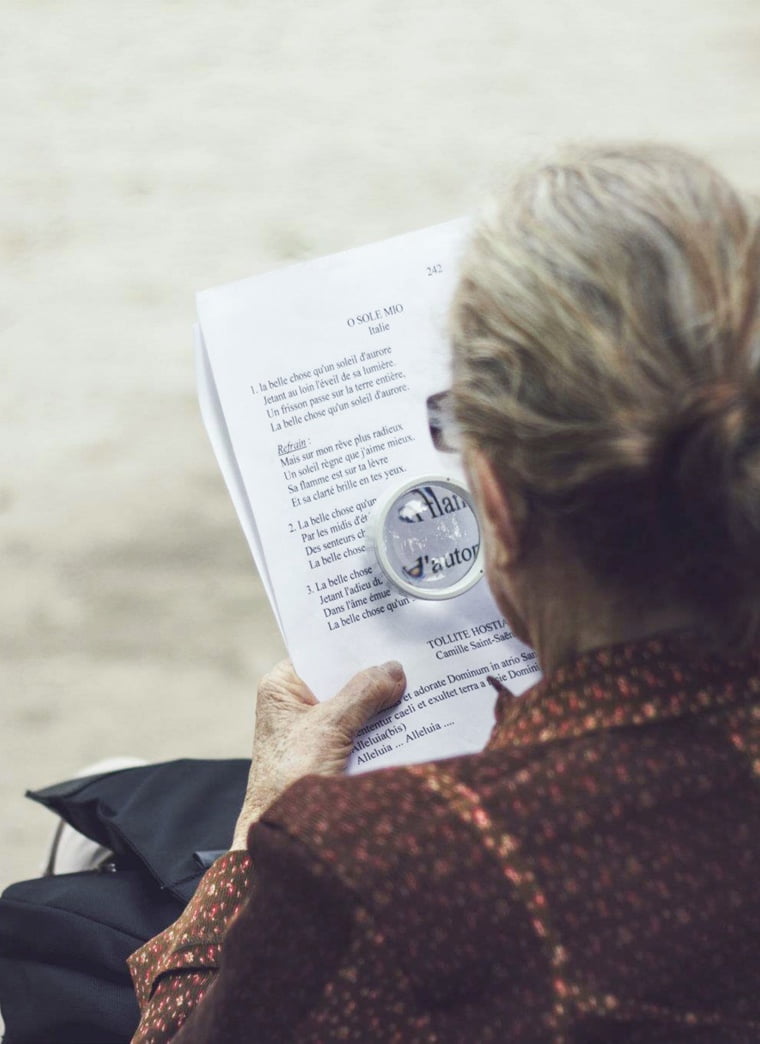Dr. Vijaya
Kolachalama
Dr. Kolachalama earned the Toffler Scholar Award in 2021 at Boston University.
Biography
Vijaya Kolachalama was born in Hyderabad, a city in South India, to a close-knit family. He feels that growing up he had three parents: his mother, his father, and his grandmother, and he credits his grandmother in particular with teaching him the value of education.
Competition for the top universities in India was intense, and Vijaya often woke up at 4:00 a.m. to study. This dedication and his family’s support helped him score high enough on his entrance exams to attend the Indian Institute of Technology Kharagpur, where he initially studied aerospace engineering. He loved the environment, where he interacted with exceptional fellow students and professors, many of whom inspired him to make connections and pursue ideas that interested him.
While pursuing his degree, he found himself increasingly interested in what was then a newly emerging field: biomedicine. During his junior year, he decided he wanted to do something more with his research project, and he took a fluid dynamics class. It was in this class he saw the connection between physics and biomedicine.
The fundamental physics of fluid dynamics—a discipline that describes the flow of gases and liquids—applied just as well to the flow of air around a spacecraft as it did to the flow of blood through inside an artery. This revelation not only provided the foundation for Vijaya’s undergraduate thesis, it inspired him to continue exploring and researching more unique connections between technology and biology.
After graduating, his studies took him from India to Europe, where he earned his PhD in Mechanical Engineering from the University of

Southampton, United Kingdom. For his postdoctoral studies, he headed to the United States, where he worked in the Harvard-MIT Biomedical Engineering Center, or Edelman Lab, located at the Massachusetts Institute of Technology. Here, he was researching vascular drug delivery, specifically focusing on understanding the role of cardiovascular blood flow, until he discovered yet another emerging field—one that would transform the trajectory of his career and his life: artificial intelligence (AI) and machine learning.
Today, Dr. Kolachalama holds a faculty position at Boston University School of Medicine along with an appointment within the Department of Computer Science at Boston University, where he is studying how advanced AI approaches can make a significant difference in the diagnostic space in medicine. His current research focuses on developing and validating novel deep learning approaches for Alzheimer’s Disease Classification.
Biography

Vijaya Kolachalama was born in Hyderabad, a city in South India, to a close-knit family. He feels that growing up he had three parents: his mother, his father, and his grandmother, and he credits his grandmother in particular with teaching him the value of education.
Competition for the top universities in India was intense, and Vijaya often woke up at 4:00 a.m. to study. This dedication and his family’s support helped him score high enough on his entrance exams to attend the Indian Institute of Technology Kharagpur, where he initially studied aerospace engineering. He loved the environment, where he interacted with exceptional fellow students and professors, many of whom inspired him to make connections and pursue ideas that interested him.
While pursuing his degree, he found himself increasingly interested in what was then a newly emerging field: biomedicine. During his junior year, he decided he wanted to do something more with his research project, and he took a fluid dynamics class. It was in this class he saw the connection between physics and biomedicine.
The fundamental physics of fluid dynamics—a discipline that describes the flow of gases and liquids—applied just as well to the flow of air around a spacecraft as it did to the flow of blood through inside an artery. This revelation not only provided the foundation for Vijaya’s undergraduate thesis, it inspired him to continue exploring and researching more unique connections between technology and biology.
After graduating, his studies took him from India to Europe, where he earned his PhD in Mechanical Engineering from the University of Southampton, United Kingdom. For his postdoctoral studies, he headed to the United States, where he worked in the Harvard-MIT Biomedical Engineering Center, or Edelman Lab, located at the Massachusetts Institute of Technology. Here, he was researching vascular drug delivery, specifically focusing on understanding the role of cardiovascular blood flow, until he discovered yet another emerging field—one that would transform the trajectory of his career and his life: artificial intelligence (AI) and machine learning.
Today, Dr. Kolachalama holds a faculty position at Boston University School of Medicine along with an appointment within the Department of Computer Science at Boston University, where he is studying how advanced AI approaches can make a significant difference in the diagnostic space in medicine. His current research focuses on developing and validating novel deep learning approaches for Alzheimer’s Disease Classification.
“There are many places in this world where there is a lack of physicians, a lack of specialists, or none at all. AI models like the ones we’re researching and developing can help fill that gap, so patients everywhere can have access to specialized expertise.”
- Dr. Vijaya Kolachalama
Research Focus
Challenges
The best case scenario for patients suffering from Alzheimer’s disease is to be diagnosed accurately so that their care teams can better manage the disease. Yet, due to the complexity of the brain, detection is extremely difficult. It is particularly difficult to tell if a patient has Alzhemier’s disease or another form of dementia. The only true diagnosis comes after death, when the patient’s brain can be examined. This yields valuable data about the disease but does very little to aid in researchers’ work toward timely diagnosis.
The challenges surrounding accurate diagnosis are exacerbated by an increasing shortage of expertise. There are simply not enough neurologists who specialize in Alzheimer's and similar memory loss disorders to diagnose the disease, let alone focus on addressing the issue of early diagnosis. And there are many places in this world who don’t have any neurologists at all.

Focus and Priorities
Dr. Kolachalama and his team are using artificial intelligence to bridge this expertise gap and to develop criteria to enable accurate diagnosis. To accomplish this goal, they are researching, building, and testing AI models that can aggregate brain imaging and multimodal health data from patients at various stages of Alzheimer’s as well as patients experiencing normal cognition. Once this data is aggregated, the AI model begins identifying, analyzing, and comparing patterns across the data. Finally, the AI model categorizes these patterns into datasets, enabling it to identify criteria that differentiates the data. It can then use this criteria to generate a “diagnosis” of each dataset.
Dr. Kolachalama and his team performed an interesting exercise to validate their model. They gave the AI model brain imaging data from 80 patients. Some had normal cognition, some were in various stages of Alzheimer’s, and some had died of the disease. Then they gave this same information to 11 neurologists representing various specialities. The AI model and the neurologists had the same task: Review these cases and tell us what these patients have. When compared, the diagnoses generated by the AI model were slightly more accurate than the average neurologist. Brain, a journal of neurology, published a detailed article about this research in May of 2020 (Volume 143, Issue 6, June 2020).
Dr. Kolachalama and his team are now expanding their research to explore the application of AI and game theory to compare historical and modern brain imaging data of Alzheimer’s patients to generate new data sets. In this AI framework, which is built on a type of game theory called generative adversarial network or GAN, two AI models work against each other. One model has a set of “true” data. The other model is attempting to “forge” it. When the second model “forges” the data flawlessly, the first model accepts it as “true”; yes, it says, this is the same as my data. Yet it is not the same. It is new data in a new format. Some preliminary findings related to this project are published here.
By applying this model, Dr. Kolachalama and his team are successfully transforming historical, low-resolution brain imaging data generated by now-outdated scanning technology into modern, high-resolution brain imaging data. They are creating new sets of data that show the progression of the patient’s brain over time.
When they give these newly generated datasets to the diagnosing AI model, it enhances that model’s ability to classify Alzheimer’s disease, bringing them even closer to the ultimate goal: creating an effective way to accurately diagnose the disease early.

Benefits
For Dr. Kolachalama and his team, the penultimate result of this work would be AI models being used in memory clinics, both independently and alongside physicians, to diagnose or detect cognitive diseases and disorders. Additionally, these models do more than merely provide the promise of accurate, early diagnosis: Because they can operate independently, they also offer a solution to the growing shortage of specialists and physicians worldwide.
Once Dr. Kolachalama and his team establish proof of principle, they are hoping to do some clinical trials or similar observational studies to test their AI model in real-world scenarios. The next step would be gaining FDA approval, which is very likely, as the FDA has already approved algorithms that aid in the detection of certain eye diseases.
Karen Toffler Charitable Trust Investment
The Investment from the Karen Toffler Charitable Trust will enable Dr. Kolachalama to research the application and use of AI models to provide accurate and early diagnosis of Alzheimer’s disease. If proven effective, these AI models could be used to detect and diagnose any number of diseases and disorders, both independent of and in tandem with medical specialists. Because AI and machine learning are comparably new technologies in biomedicine, researchers and developers do not have access to adequate funding sources. Vijaya hopes his work will have a transformative impact on disease detection and diagnosis while also mitigating the growing global shortage of medical specialists and physicians.
“Diagnosis is as important as treatment, because accurate diagnosis enables effective treatment. If a diagnosis is not right, or only partly right, then the treatment’s efficacy is compromised. These AI models increase the accuracy of the diagnosis, which means they can also increase the efficacy of treatment.”
- Dr. Vijaya Kolachalama